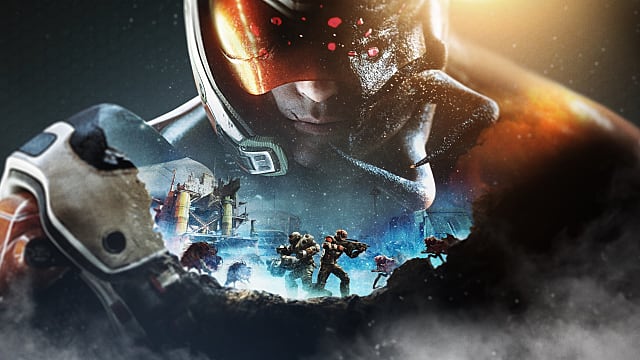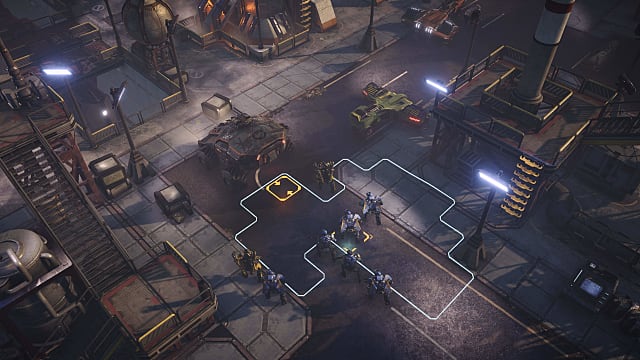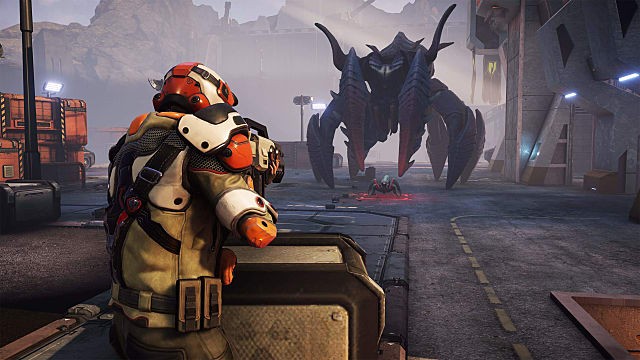

When reviewing a game, I try not to draw direct comparisons to other games if it can be avoided. I compared Darksiders Genesis a bit to Diablo for obvious reasons, and Sparklite wears its Zelda influences on its sleeve. But generally, I believe every game should be judged on its own merits.
That isn't possible with Phoenix Point. Reviewing this game in a vacuum is missing the point. You honestly can't discuss its merits and failings without drawing a bold line with permanent marker directly back to XCOM.
Phoenix Point Review: A Lot Like XCOM
Phoenix Point is developed by Snapshot Games, a studio co-founded by Julian Gollop, the original creator of the XCOM series.
Naturally, Gollop draws heavy inspiration from his past work. But in this case, it's a bit more like that meme about copying homework and changing a little of it to not get in trouble than it is about simply iterating previous ideas.
Don't get me wrong: there are some key differences between the games, but if you didn't know the differences between them and watched footage of both, I could fully understand if you thought Phoenix Point and XCOM 2 were the same game — or at least games in the same franchise.
Just like XCOM, Phoenix Point is a mostly isometric turn-based strategy game that tasks you with mounting forces against strange creatures hell-bent on overrunning the planet. However, Phoenix Point swaps aliens for grotesque oceanic monstrosities emerging from the sea as bizarre mutations.
The upside to this idea is that there is a refreshing amount of enemy variety in Phoenix Point, at least in terms of design and size. In the latter parts of the campaign, enemies start to get extremely tough, and it makes some of the higher difficulty settings extremely difficult.
As the new leader of the Phoenix Project, you are tasked with upgrading and establishing bases around the world — slowly and methodically. There are multiple factions of surviving humans, so you must pick sides and pick your battles carefully. You'll even get special upgrades unique to the factions you pick.
Overall, I think the base approach in XCOM 2 is a bit better and more focused, as opposed to the more scattered approach here. This version of the system has a bit too much micromanagement to still be fun.
But don't worry: just like in XCOM, you can name your squad members in Phoenix Point. You can even customize them a bit. Of course, they will be dead for good if they fall in combat, which is certainly assured.
Thrill Of Tactical Combat
On the surface, gameplay looks and feels a lot like XCOM, but there are some major differences worth noting.
Instead of every shot devolving into a dice roll, every bullet has its own trajectory in the engine. You can auto fire or take direct-aiming control with a system similar to VATS, a targeting system found in Fallout, that lets you target specific body parts or even weapons. This means you can do things like shoot off limbs to make enemies drop weapons. Disabling what makes an enemy powerful eventually becomes, more or less, the only strategy that can lead to a win.
Phoenix Point is at its best when you're in the thick of combat, executing your strategy and feeling confident, all before things suddenly start to go wrong. Except, to its credit, that's usually because a big new enemy shows up or factions bicker with each other more so than it is a missed shot that had a 95% chance of landing.
It's also a big reason why the combat AI for enemies leaves so much to be desired.
Enemies often make terrible strategic decisions or choose to not setup overwatch fire to take shots when you cross their path, which should be common sense. Then there are the bugs on top of that, with enemies aimlessly running away from fights, running into walls over and over, or just choosing to not stay behind cover.
Missions rarely last more than a half-hour, so you don't need to suffer through anything for too long, but it does rob the battles of their depth and complexity when a mutated fish-man is acting like a chicken with its head cut off.
To its credit, Phoenix Point does use its setting well. Mechanically, and inside combat encounters, the XCOM influences are unmistakable. But in terms of the game's lore, it carries with it a much more sinister and ominous vibe. The game never fully crosses over into actually scaring you, but the music and atmosphere is much more palpable here than in XCOM.
This is bolstered by the desperate feel attached to the story's progression. Since you're forced to essentially decide who lives and dies, you never quite get enough forces to span the entire globe as best as you might try.
It does a good job of emulating that feeling of "fighting a losing battle" that most doomsday scenarios eventually look past to provide a power trip. But the high points of the campaign are marked by these moments of consideration and decision-making, not so much the strength of the story itself, which is mostly forgettable.
Phoenix Point Review — The Bottom Line
Pros:
- Interesting lore and setting
- Nails the fundamentals of tactical turn-based combat
- Some unique gameplay ideas, like targeting body parts
- Entertaining faction dynamic with an evolving globe map
Cons:
- Relatively frequent bugs and bad AI
- A bit too similar to XCOM in most key ways
- Unique setting is under-utilized
If you're a fan of turn-based tactical games with sci-fi flair like XCOM, then Phoenix Point is absolutely worth checking out. But if you're looking for something fresh and original that takes the genre in bold new directions, you might want to consider Phantom Doctrine or Mutant Year Zero instead.
Phoenix Point does a lot right to nail the nuts and bolts of what makes these sorts of games tick and is certainly a quality, challenging adventure for genre aficionados. But it never fully escapes the big alien-shaped shadow from whence it came.
[Note: A copy of Phoenix Point was provided by Snapshot Games for the purpose of this review.]


0 comments:
Post a Comment